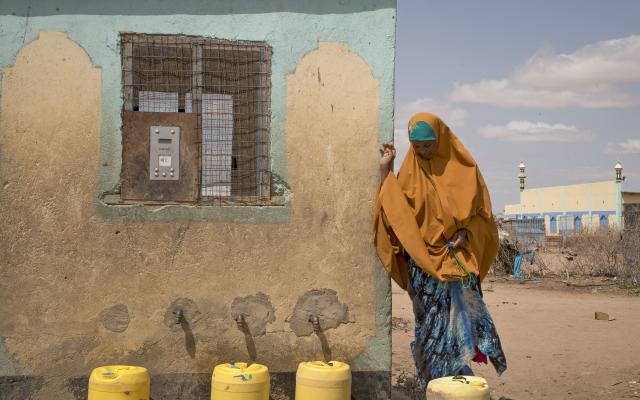
Oxfam envisages a transformed Kenyan society in which each individual, regardless of gender, religion, ethnicity, or social standing, is able to access basic services, and fully participates in decision-making processes on issues that affect their lives and can be heard.

Kenya has the largest economy in East Africa and has enormous potential in its educated population, vibrant private sector and natural resources. Despite this potential, it has disproportionate levels of poverty, women’s marginalization, broader inequality, government mismanagement and violence. Kenyan civil society and citizenry and have tremendous potential but are too easily typified by apathy, poor organization and dependence.
In Kenya, the highest poverty levels are in the northern pastoralist districts - in some areas 95% of people fall below the poverty line. Like many developing countries, the country is undergoing rapid urbanization. It’s estimated that by 2050 half the Kenyan population will be living in urban areas. This high presents a myriad of challenges. 34% of the 17 million poor Kenyans are urban poor and most of them live in informal urban settlements.

People living in the arid and semi-arid areas of northern Kenya have chronic problems accessing sufficient and clean water. In 2014, Oxfam piloted the use of electronic water meters, commonly known as water ATMs, which make water available 24 hours a day and keep its price low. Photo: Katie G. Nelson/Oxfam
Oxfam in Kenya
Oxfam envisages a transformed Kenyan society in which each individual, regardless of gender, religion, ethnicity, or social standing, is able to access basic services, and fully participates in decision-making processes on issues that affect their lives and can be heard. In addition, Oxfam in Kenya believes that every Kenyan has a right to make free and informed choices to build sustainable livelihoods and resilience to external shocks.
Since 1963, Oxfam in Kenya has worked with partners in long-term development programs, humanitarian assistance, peace and conflict resolution programs and actively engaged in campaigning for better governance and equitable access to services.
Our program work:

Climate and food crisis in East Africa: our response
An extreme lack of food is causing severe hunger and malnutrition across East and Central Africa, following consecutive failed rainy seasons, prolonged drought and in some areas subsequent floods. The region is also facing the biggest locust outbreak in over 25 years, and the most serious in 70 years for Kenya. Oxfam is on the ground, provide cash assistance and distributing soap, hygiene kits and clean water to hospitals and communities.